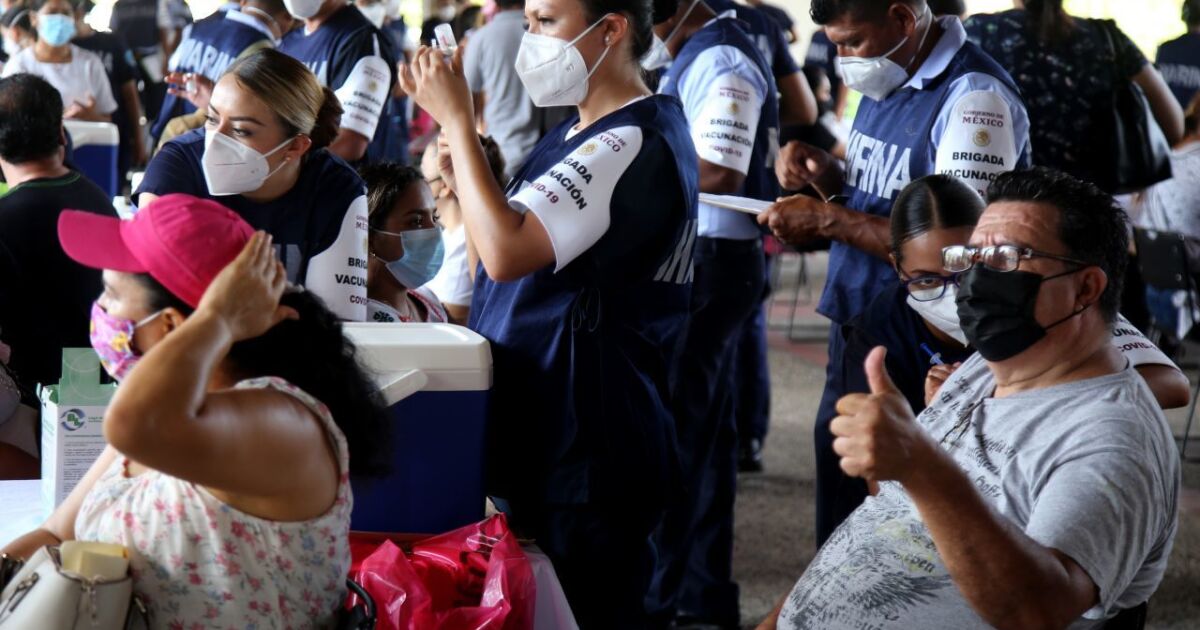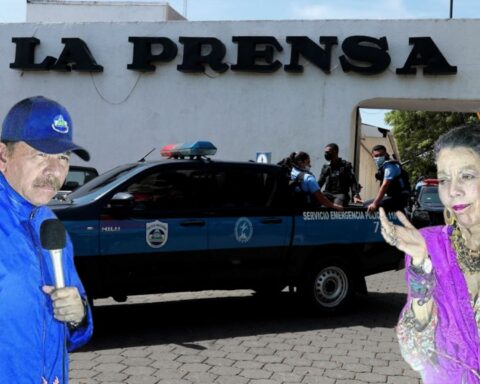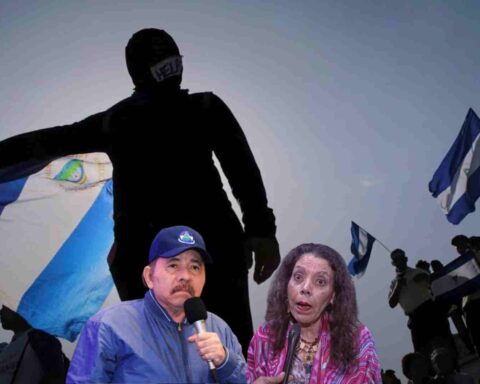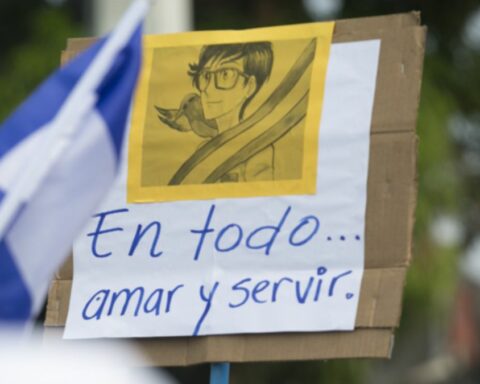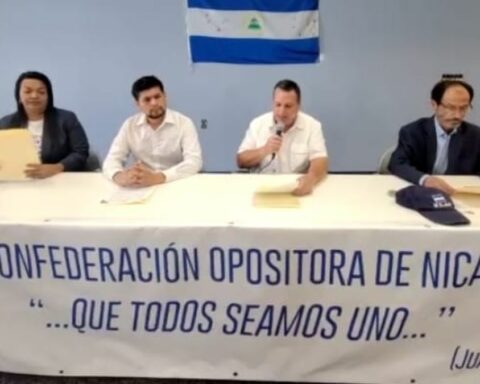On the commemoration of the fourth anniversary of the Civic Rebellion, which broke out on April 18, 2018, the Ortega regime intensified the siege against victims of the massacre, released prisoners, opponents and civic leaders in Managua, Tipitapa, Ticuantepe, Diriá, Rivas and other areas of the country, which woke up under surveillance by riot police and officers mobilized on patrols and motorcycles. In addition, the Police recaptured for the fourth time the former prisoner of conscience, Francisco Hernández.
The Reflection Group for Political Prisoners (GREX) denounced that Hernández was arrested on Monday morning while he was on his way to collect his fees. He was intercepted by a police chief, who called a patrol car and violently took him away.
A witness reported, according to GREX, that Hernández tried to take refuge in a house in the San Judas sector, but to no avail. He is in Police District Three, he confirmed to CONFIDENTIAL the lawyer Yonarqui Martínez.
“We demand the immediate release of Francisco Hernández, he is a hard-working citizen who owes nothing to the judicial system of this country,” GREX demanded in its complaint. This arrest is added to the arrests of four musicians and producers carried out last Tuesday, April 12, after the participation of those involved in a concert for the 15th anniversary of the band Monroy y Surmenage —held on April 2— where allegedly the Ortega-Murillo regime, through one of the songs performed.
Josué Monroy, member of the band Monroy and Surmanage; Xochilt Tapia and Salvador Espinoza, managers of Saxo Producciones remain detained. In the case of music producer Leonardo Canales, director of La Anteala, he was deported.
URGENT: The released Francisco Hernández is recaptured by the National Police while on his way to work, this would be the fourth time he has been the victim of illegal detention. We demand that the authorities release him. pic.twitter.com/UpiLjVHmRJ
– Yonarqui Martinez G (@YonarquiM) April 18, 2022
Siege against relatives of April victims
Carlos Pavon, father of Richard Pavon, who this Tuesday, April 19, will be four years since he was assassinated in Tipitapa, continues to be the victim of a police siege. This Monday, at 8:00 am, a patrol with 12 officers stationed itself a few meters from his home; After an hour and a half, about eight police officers remained at the scene, monitoring and searching the cars that entered the street where the Pavón family lives.
“One is talking on the phone, I don’t know if he is asking for an order, perhaps, a search. You know that today, that is the way they are acting,” said Pavón, referring to the fact that last Tuesday, the Police carried out a day of raids on seven homes of opponents and members of the Mothers of April Association (AMA). , in search of alleged “political propaganda”.
Pavón does not even know if he will be able to bury his son’s grave this Tuesday due to the same police harassment. The patrols almost always park near his house, stay an hour or less, take photos, videos and leave. “My demand will always continue to be the thirst for justice for my son and for the many murdered children…this is the daily bread that the Ortega-Murillo regime gives us. Perhaps we are afraid, but I am not going to stop demanding justice and if that is a crime, it is up to them… ”, he expressed.
In Ticuantepe, four patrols with about 15 policemen, including agents and riot police, arrived at the house of the professor and former political prisoner, Juan Bautista Guevara. After a few hours, they left only a patrol with five officers who guard the house, in which three minors remain.
“This is every day, not just because it’s the 18th (April). I have always denounced that it is all the time, at all hours, at any time. In general, they come at twelve at night or one in the morning, they sound the siren, they take videos around the perimeter of my house,” said the teacher, who assured that he is in a civic death, since due to the same siege, he cannot give private lessons in his house.
In Managua, an opponent who we will call “Karla” for her safety and who lives under police siege, assured that from very early on, two motorized police stationed themselves outside her house. The same thing happened to another citizen in a department in the southeast of the country, whom in previous weeks the Police threatened to imprison if an act of civic resistance was carried out in the town.
Octavio Ortega Arana, a well-known opponent in Rivas, denounced that since 6:30 am on April 18, four police officers placed cones around his house and remain outside watching. At about 9:30 am, a crew from the Nicaraguan Aqueduct and Sewer Company (Enacal) arrived and cut off the drinking water service for no reason, since it has no delinquent receipts. Ortega sees the action as another retaliation by the Ortega regime.
72 DD violations. H H. prior to April 18
The wave of intimidation by the Ortega dictatorship began on April 12 with arrests, raids and harassment. The Blue and White Monitoring recorded 72 incidents of human rights violations, which occurred between Monday, April 11 and Saturday, April 16; They include sieges by police or paramilitaries against relatives of April victims, those released from prison, and members of social movements; threats; mistreatment, and harassment reported by citizens from Carazo, Jinotega, Granada, Masaya, Rivas, North Caribbean, South Caribbean, Boaco, Matagalpa, Nueva Segovia and Managua.
There was also an arrest, but the person was released hours later.
Four years ago, Nicaraguans took to the streets of the country to protest against a Social Security reform, which among many points removed 5% from pensions. Ortega’s violent response claimed the first fatalities, turning the social outburst into a demand for justice, freedom and democracy. The regime silenced the protests by imposing itself by force of arms and caused a massacre of more than 300 people, whose deaths remain unpunished.
The hunt continued and jailed more than 500 Nicaraguans, while tens of thousands fled into exile. In four years the country has still not solved the sociopolitical crisis, now, aggravated by the economic crisis, the ravages of the covid-19 pandemic, the resurgence of the police state, and the approval of punitive laws that threaten freedom of expression and of association.
More than 180 political prisoners remain in Nicaragua, including civic leaders, politicians, human rights defenders, peasants, students, and journalists.



